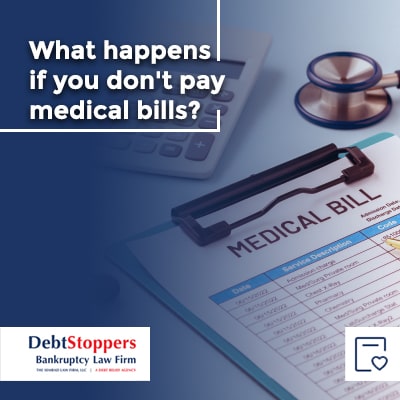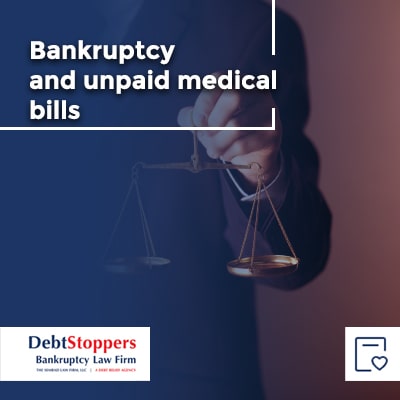How To Get Medical Bills Forgiven? 5 Tips From Debtstoppers

Medical bills are a leading cause of financial distress for many Americans. Even with insurance, unexpected healthcare costs can leave families struggling to make ends meet. Fortunately, there are strategies to reduce, manage, or even forgive medical debt. DebtStoppers is a top-rated bankruptcy law firm that specializes in helping individuals navigate these challenges. Here are five expert tips to help you address your medical bills and regain financial stability.
Do medical bills affect your credit?
Yes, medical bills can impact your credit score, but the process differs from other types of debt. Medical providers don’t typically report unpaid medical bills directly to credit bureaus. Instead, if a bill goes unpaid, it may be sent to a collection agency, which can then report it.
However, recent changes have lessened the immediate impact of medical debt on credit scores. Major credit bureaus now allow a 12-month grace period before reporting medical debt in collections. Additionally, as of 2022, medical debts under $500 no longer appear on credit reports. Despite these improvements, unresolved medical debt can still harm your financial standing, making it harder to secure loans or favorable interest rates.

What happens if you don't pay medical bills?
If medical bills go unpaid, the consequences can escalate over time. Initially, you’ll likely receive reminders or notices from the medical provider. If the debt remains unpaid, it may be sent to a collection agency, which can lead to persistent collection calls and potential damage to your credit.
In some cases, medical providers or collection agencies may take legal action, such as filing a lawsuit to recover the debt. If they obtain a judgment against you, they could pursue wage garnishment or liens on property, depending on state laws. Ignoring medical bills can also limit your access to future healthcare services from the same provider. Addressing medical bills promptly is crucial to avoiding these outcomes.
How to get medical bills forgiven?
Medical bills don’t always have to be a permanent burden. Here are five actionable steps to explore forgiveness or relief options:
Review your medical bills for errors
Medical billing errors are surprisingly common, so it’s important to carefully review every statement you receive. Look for duplicate charges, incorrect treatments, or services you didn’t receive. If you spot errors, contact the billing department of the medical provider to request corrections. Ensuring the accuracy of your bill is the first step toward resolving it.
Negotiate with the medical provider
Many hospitals and healthcare providers are willing to negotiate payment terms. If you can’t pay the full amount, ask about discounts or reduced rates, especially if you’re paying in cash. Providers may also offer payment plans to spread the cost over several months or years, making the debt more manageable.
Seek legal help
If you’re overwhelmed by medical debt or facing aggressive collection actions, consulting a legal professional can be invaluable. An attorney can help you understand your rights, dispute invalid debts, and negotiate on your behalf. They can also guide you through complex legal processes, such as responding to lawsuits or protecting your assets from garnishment.
Apply for financial assistance
Many hospitals have charity care or financial assistance programs for patients who meet certain income thresholds. These programs can significantly reduce or even eliminate your medical debt. Contact the provider’s billing office to inquire about eligibility and application requirements. Providing documentation of your financial situation may be necessary to qualify.
Consider bankruptcy
If medical bills are part of a broader financial crisis, bankruptcy may be a solution. Filing for bankruptcy can discharge or restructure medical debt, depending on the type of bankruptcy you choose. While it has a significant impact on your credit, it provides a fresh start and relief from overwhelming financial burdens.

Bankruptcy and unpaid medical bills
For people with insurmountable medical debt, bankruptcy should be considered a powerful tool for financial recovery. Understanding the options available can help you decide whether bankruptcy is the right path.
Chapter 7
Chapter 7 bankruptcy, also known as liquidation bankruptcy, can discharge most unsecured debts, including medical bills. This type of bankruptcy is typically best for individuals with limited income and few assets. Upon filing, an automatic stay goes into effect, halting collection actions such as lawsuits or wage garnishments. Once the process is complete, your eligible debts are wiped out, giving you a clean slate.
Chapter 13
Chapter 13 bankruptcy, or reorganization bankruptcy, allows you to repay your debts over a three to five year period based on a court-approved repayment plan. This option is suitable for individuals with a steady income who want to retain their assets, such as a home or car. Medical bills are included in the repayment plan, and any remaining balance at the end of the term is typically discharged.
Medical bills can be a significant source of stress, but they don’t have to derail your financial future. By reviewing your bills, negotiating with providers, seeking legal assistance, and exploring options like financial aid or bankruptcy, you can find relief from overwhelming healthcare costs.
At Debtstoppers, we specialize in helping people navigate financial challenges, including medical debt. Contact us today for a free consultation to discuss your situation and learn how we can help you take the first steps to making life affordable again.





